Interview: Bill Cameron, Reporter and "Dean of Chicago Politics"
By Karl Klockars in News on Mar 13, 2008 6:49PM
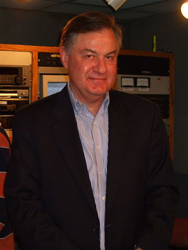 “I miss the beat,” says Bill Cameron. “But hopefully I'll be able to get back to it sooner rather than later.” Cameron is no longer on that beat because he was let go by his employers, WLS Radio, a couple Fridays back in what's being called the Leap Day Massacre. So, seeing as how he had some extra time on his hands, we decided to get in touch with him and talk about nearly 40 years of experience covering Chicago politics. [Full disclosure: Your humble author used to work with Cameron at WLS.]
“I miss the beat,” says Bill Cameron. “But hopefully I'll be able to get back to it sooner rather than later.” Cameron is no longer on that beat because he was let go by his employers, WLS Radio, a couple Fridays back in what's being called the Leap Day Massacre. So, seeing as how he had some extra time on his hands, we decided to get in touch with him and talk about nearly 40 years of experience covering Chicago politics. [Full disclosure: Your humble author used to work with Cameron at WLS.]
From covering the Boss, Richard J. Daley, through to present day and the new Stroger dynasty, Cameron has seen it all. How long will our current mayor keep his job? Has he come out of his father's shadow? And have Chicago politics gotten any better over the decades? All this and whether or not radio news matters any more - after the jump.
Chicagoist: I know of your work at WLS, and you came to 'LS from WMAQ – but how long have you been covering Chicago politics in total?
Bill Cameron: I came to town in '69, and spent a year on a desk. Actually, I came aboard as a vacation relief TV writer, cutting film and writing scripts for Channel 5. And then when Halloween of '69 hit, they decided which vacation relief people to keep, and they kept 2 of us. I went to work on a radio desk at 'MAQ as it was getting its first news director, getting TV reporters to file to radio and I was the editor they would file to, I'd assign them. Then we had radio-only reporters develop, and I became a radio reporter for 'MAQ in...'70. So, I spent essentially a year on the radio desk.
C: 4 decades of Chicago politics – that's a lot of history.
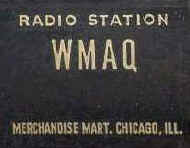 BC: Yeah, as a matter of fact, for that company I spent the summer of '68 on a New York radio desk when everything was falling apart here at the convention. So anyway, I hit the street in Chicago in '70, and that's the campaign of Richard J. Daley's re-election in February of '71.
BC: Yeah, as a matter of fact, for that company I spent the summer of '68 on a New York radio desk when everything was falling apart here at the convention. So anyway, I hit the street in Chicago in '70, and that's the campaign of Richard J. Daley's re-election in February of '71.
C: I bet that was fun.
BC: Oh yeah. He was a real political folk hero. He's one of about 4 people I really miss. Him and Harold Washington, and two reporters – Harry Golden Jr. of the Sun-Times, who we named the press room after, and Bob Davis, really funny, and very competent Tribune writer [and] City Hall reporter.
C: Do you mean that professionally, or personally?
BC: Both. Both. I mean, so much of what I do is making Chicago politics interesting on the radio. My job is to make the farce and corruption and Big Ideas of Chicago politics interesting on the radio. And it's been great fun.
C: In your opinion, have Chicago politics gotten any better?
BC: No, they just keep stealing. [laughter] It's amazing. For all of the prosecutions, I'm convinced that the Feds must be catching 1, 2, maybe 3 percent of the crooks. And the other 97% see that they're getting so few, that [they think] "I can get away with it so I'm going to steal too." That's the only explanation I can think of as to why, with all the prosecutions, the corruption has not stopped.
C: If the level of it hasn't changed, has the style changed? Like, whereas before it'd be shaking down people for votes, now it's moved to things like Hired Truck and so on?
BC: It has. That Rezko trial is a good example of how there was such demand to stuff Blagojevich's campaign coffers with so many millions to scare off any serious competition, that they did things like shaking down investment firms for campaign contributions in exchange for getting a crack at the investment business. And that's how money corrupts politics from here to Washington. People are just too culpable...they're just venal. They're willing to take a bribe.
So the numbers have gotten a lot bigger, and the shakedowns are for sometimes different reasons. But it's still basically selling your office. An oldtimer like George Ryan to this day, I'm sure, doesn't think he did anything wrong. Because all he did was what all the other Secretaries of State did. But times change, and people like Ryan or Rostenkowski, another example, don't change with the times. And they get caught in the switches.
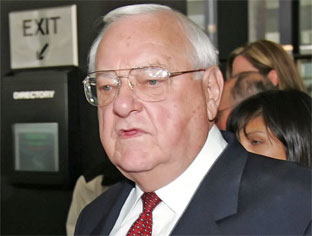 C: Well, just by virtue of being governor, Ryan had much more of a spotlight on him...and there was the Willis family accident.
C: Well, just by virtue of being governor, Ryan had much more of a spotlight on him...and there was the Willis family accident.
BC: That's right. I think the accident was the thing that propelled and inspired the Feds to go after him, for all those other counts. Were it not for the accident, I don't know that they would spend all those millions getting him. But the accident, they argued in court and probably is true, is the natural consequence of the corrupt system in that Secretary of State's office because Ryan's inspector general literally put the investigation of that accident to sleep.
C: You've covered both Daley mayors – what do you think are the major differences between the two?
BC: Well, the big difference is that Rich Daley, our current mayor, practices coalition politics. And Richard J. Daley had a distinct and greater numbers of enemies. And he didn't seek to placate them or bring them into the fold. The current Mayor Daley has done that, and that's why he wins by landslides. He doesn't really even attract any serious competition.
The other big difference is in the way they run the schools. Where Richard J. Daley, he would have an elected school board and he would always make sure that the teachers and the unions were protected. In the system, the kids kinda came in last. And it was really Daley's function to make the system benefit the unions, the trades and the teachers. And the schools were lousy. Daley the son has made a real concerted effort to improve the schools in ways that are showing up significantly in student achievement scores. And I don't think Richard J. Daley cared much about that.
C: Has the current mayor gotten out of shadow of his father?
BC: Yeah. Yeah, because he's about to surpass the number of years in office, and he's doing new things that are getting Chicago less the "Al Capone" town and more "the Olympic city." It's in many, many ways a world-class city.
C: Do you think Mayor Daley is in for life, like his father was?
BC: Oh, yeah, I think so. I don't think he retires. What's he going to do, teach diction at Northwestern?
C: So who's the next mayor, in your opinion?
BC: Well, when Daley passes from the scene, you'll see Jesse Jr. You'll see maybe Little Louie, Luis Gutierrez. Maybe even Paul Vallas comes back to town. But it'll be a huge primary, like the one in '77 after Richard J. Daley died. You'll see Eddie Burke try to win the Mayor's job. It'll be like the Democratic presidential primary this year, you start with 6 or 8 people.
C: Who would you say is the most effective Chicago politician you've covered?
BC: Hm. [long pause] It might be Mayor Daley. Because I believe he's insulated from current corruption. Which is not to say that he didn't know what was going on. But his ability to get all the power structures of the city pulling in the same direction. You asked me for most effective, and that probably makes him the most effective. None of the other mayors, even his father, were able to do it as well as he does it.
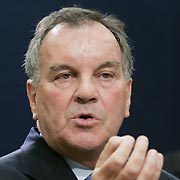 For example, the Olympic thing, he's got everybody. All the big money. All the public relations. All of the athletics. All of the big powers in that huge initiative, pulling in the same direction to try to get the 2016 games. But you know, there is corruption, and it'll be interesting to see if the new police superintendent in the area of police corruption and brutality, really will be given a free hand to go after it. Because it's a really Daley-run department.
For example, the Olympic thing, he's got everybody. All the big money. All the public relations. All of the athletics. All of the big powers in that huge initiative, pulling in the same direction to try to get the 2016 games. But you know, there is corruption, and it'll be interesting to see if the new police superintendent in the area of police corruption and brutality, really will be given a free hand to go after it. Because it's a really Daley-run department.
A couple of reasons why it's in his interest to clean up police brutality – because it costs them so many millions of dollars in liability insurance and judgements. And the benefit to him politically is enormous, if he can stop [them from] beating up innocent people. That's one of those problems that has never gone away. And of course the police department is also corrupt in terms of shakedowns, burglaries by police officers.
C: You started in an era where even music stations had newsrooms. How much has the business changed? And what do you think has driven that?
BC: It used to be, you had to do news to keep your license. So, all the big stations had news rooms. Then came Ronald Reagan. Two things happened under Reagan. One is, they relaxed the requirements for radio stations to have news and public affairs. And most of the newsrooms went away. The second thing that happened is that they repealed the Fairness Doctrine. And that allowed talk radio to bloom, that paved the way for Rush Limbaugh, and other talk show hosts to give only one side of an issue for three hours or four hours. With no obligation to give the other side equal time.
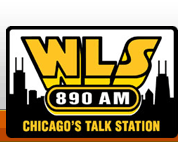 So when those things went away under Reagan, you get what we now have in radio. Now, with the emergence of the new media, local radio stations have to figure out a way to compete with the mp3 players, the internet, cable TV and all those things. And the way you do that is by becoming intensely local. We had a program director at 'LS named Mike Elder who brought me in for just that reason. To boost our commitment to Chicago, by covering the best show in town – Chicago politics.
So when those things went away under Reagan, you get what we now have in radio. Now, with the emergence of the new media, local radio stations have to figure out a way to compete with the mp3 players, the internet, cable TV and all those things. And the way you do that is by becoming intensely local. We had a program director at 'LS named Mike Elder who brought me in for just that reason. To boost our commitment to Chicago, by covering the best show in town – Chicago politics.
That's why the latest firings are so strange and hard to understand. Because if 'LS is going to compete, you need guys like me out there on the street and on the Roe Conn show telling people what's going on in the farce and corruption and Big Ideas. So those are the factors that have subtracted and added to local news on radio.
C: Do you think the need for radio news has changed? Have we switched back to print on the internet, and on TV, that radio news has become an afterthought?
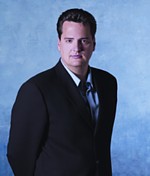 BC: I really don't think so. Because you're still going to choose the medium that has the guy that you like. That's why Roe is so popular, that's why it was such a privilege to do my thing on Roe's show. I think content really is king. Until recently, we had a market here that was supporting three big AM stations. Which is very unusual in America, having a city supporting three AMs. Now, 'LS is in decline as it backs away from its commitment to local, and 'BBM has the lock on what would be considered all-news, and 'GN is your local Chamber of Commerce which is going to promote and give you all the information on things going on in and about Chicago.
BC: I really don't think so. Because you're still going to choose the medium that has the guy that you like. That's why Roe is so popular, that's why it was such a privilege to do my thing on Roe's show. I think content really is king. Until recently, we had a market here that was supporting three big AM stations. Which is very unusual in America, having a city supporting three AMs. Now, 'LS is in decline as it backs away from its commitment to local, and 'BBM has the lock on what would be considered all-news, and 'GN is your local Chamber of Commerce which is going to promote and give you all the information on things going on in and about Chicago.
C: Looking back, what do you think is the biggest story you've covered so far?
BC: I think generally the history of Chicago politics, and all the time I've been on the beat. But there have been other big stories like John Wayne Gacy, I was out at the DC-10 crash in '79 – I was one of the first to drive up on that. Looked like a burnt out junkyard. And political conventions, the death of Harold Washington, the death of Richard J. Daley. But generally speaking, it's just all that farce and corruption and Big Ideas of Chicago politics.
C: Has anyone approached you to write a book yet?
BC: Yeah.
C: Have you taken them up on it?
BC: No. What I do is put politics to radio. Jeannie Morris told me years ago that writing books is a lot of work for not much reward. If somebody asks you to write a book, really think twice about it. Because you know, unless you've got a nice advance and a lot of promotion behind it, you're going to be on the remainder table in 6 or 8 months! But I have put together a couple of audio things, an LP on Richard J. Daley called "Mayor Daley on the Record," and an audio cassette of Harold Washington, "Remembering Harold."
C: What's next?
BC: Oh, I've got my nets out. Seeing who might be interested in me, and a home for what I do. And that is more than radio these days. You've gotta kinda get into the new media if you're going to survive.
C: Are we talking about something like a podcast?
BC: Yes. A podcast of what I do - think of what I was doing with Roe, or Connected to Chicago. Think of that available online somewhere, even on your website. There are websites out there that people frequent that might be interested in my take with that tape of the day or the past, that might be making Chicago politics interesting on the web.
C: Have you ever thought about leaving the market?
BC: Well, if I – I don't think so. I want to keep doing what's fun for me. I've done some work for the networks, traveling, living out of a suitcase. I don't like to do that. And I'd like to do what I know, like every writing teacher told their students. Write about what you know.